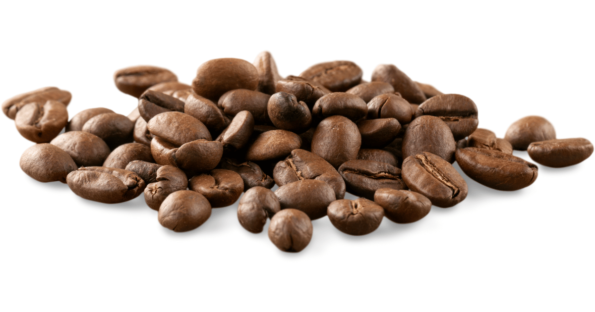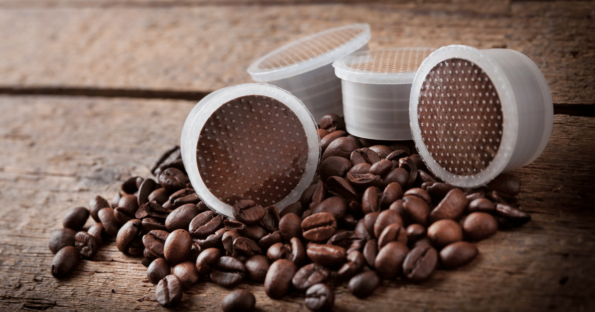Welcome to the caffeinated world of wakefulness! Are you ready to dive into the surprising duration of caffeine’s power to keep you awake? In this intriguing journey, we will unravel the secrets behind this beloved stimulant and explore just how long it can save you from buzzing with energy.
Get ready to sip on some knowledge as we delve into the fascinating realm of caffeine’s wakefulness in 2023. So grab your favourite cup of joe, and let’s embark on this caffeinated adventure together!
In the fast-paced world of 2023, where sleep is a luxury and productivity is paramount, one question looms large: How long can caffeine keep you awake? Prepare to be amazed as we delve into the surprising duration of caffeine’s wakefulness.
From unravelling the secrets of this beloved stimulant to exploring the factors that affect its effects, we will uncover the truth behind caffeine’s ability to keep you alert and focused. So grab your favourite cup of joe and get ready to embark on a caffeinated journey like no other.
Get ready to discover the untold story of caffeine’s wakefulness in 2023!

What is Caffeine?
Caffeine is a natural stimulant commonly found in various beverages and foods. It belongs to a class of compounds called xanthines and is known for its ability to increase alertness and reduce fatigue. Caffeine is most commonly consumed in coffee, tea, energy drinks, and chocolate.
Caffeine works by blocking the action of adenosine, a neurotransmitter that promotes sleep and relaxation.
By inhibiting adenosine, caffeine increases the activity of other neurotransmitters, such as dopamine and norepinephrine, which promote wakefulness and enhance cognitive function.
The effects of caffeine can be felt within 15 to 45 minutes after consumption and can last for several hours. The exact duration of caffeine’s wakefulness can vary depending on several factors, including the individual’s metabolism, tolerance to caffeine, and the amount consumed.
How Does Caffeine Keep You Awake?
Caffeine is a natural stimulant that affects the central nervous system, helping to keep you awake and alert. It works by blocking the action of adenosine, a neurotransmitter that promotes sleep and relaxation.
When adenosine is blocked, other neurotransmitters, such as dopamine and norepinephrine, increase, leading to increased alertness and wakefulness.
Once consumed, caffeine is rapidly absorbed into the bloodstream and reaches peak levels within 30 to 60 minutes. It then has a half-life of about 3 to 5 hours, which means it takes the body to eliminate half of the caffeine from the system. However, the effects of caffeine can be felt for much longer than its half-life.
Caffeine’s wakefulness effects can last anywhere from 3 to 12 hours, depending on factors such as the individual’s metabolism, tolerance to caffeine, and the amount consumed.

Some people may experience a more prolonged wakefulness effect, while others may feel the effects wear off sooner.
Caffeine is a stimulant that can interfere with the natural sleep-wake cycle. Consuming caffeine too close to bedtime can make it difficult to fall asleep and may lead to disrupted sleep patterns. It is recommended to avoid consuming caffeine at least 6 hours before bedtime to minimize its impact on sleep.
Factors Affecting the Duration of Caffeine’s Wakefulness
Regarding the duration of caffeine’s wakefulness, several factors can influence how long the effects last. Understanding these factors can help individuals manage their caffeine intake and optimize their sleep patterns.
1. Metabolism:
The rate at which your body metabolizes caffeine can vary from person to person. Some individuals have a faster metabolism, which means they can quickly process and eliminate caffeine. On the other hand, individuals with a slower metabolism may experience the effects of caffeine for a more extended period.
2. Sensitivity:
Each person has a different level of sensitivity to caffeine. Some individuals may be more sensitive to its effects, while others may require higher doses to experience the same wakefulness. Those more sensitive to caffeine may find that its effects last longer for them.
3. Dosage:
The amount of caffeine consumed plays a significant role in determining the duration of wakefulness. Higher doses of caffeine are likely to keep you awake for a more extended period than lower doses. Be mindful of the caffeine you consume, especially in the evening, to avoid disrupting your sleep.

4. Timing: The timing of caffeine consumption can also impact the duration of wakefulness. Consuming caffeine later in the day, incredibly close to bedtime, can interfere with your ability to fall asleep and may result in a shorter sleep duration. It is generally recommended to avoid consuming caffeine at least 6 hours before bedtime to minimize its impact on rest.
5. Tolerance: Regular caffeine consumers may tolerate its effects over time. This means that the duration of wakefulness may decrease as the body becomes accustomed to the stimulant. However, it’s important to note that caffeine can still impact sleep quality and quantity, even with tolerance.
Considering these factors, individuals can make informed decisions about caffeine consumption and its potential impact on their sleep. Finding a balance that allows for wakefulness when needed while prioritizing restful sleep for overall health and well-being is essential.
Average Duration of Caffeine’s Effects
Caffeine is a stimulant that can help keep you awake and alert, but the duration of its effects can vary from person to person. On average, the results of caffeine can last anywhere from 3 to 5 hours. However, it’s important to note that individual variations in caffeine sensitivity can significantly affect how long caffeine can keep you awake.
Several factors influence the duration of caffeine’s effects. One of the main factors is the amount of caffeine consumed. Generally, the more caffeine you consume, the longer its effects will last.
For example, a cup of coffee typically contains around 95 milligrams of caffeine, while a can of energy drink can contain up to 300 milligrams. Consuming more significant amounts of caffeine can result in a longer duration of wakefulness.

Another factor that affects the duration of caffeine’s effects is your body’s metabolism. Some individuals metabolize caffeine more quickly than others, so its effects may wear off sooner for them.
On the other hand, individuals with a slower metabolism may experience the effects of caffeine for a more extended period.
Individual Variations in Caffeine Sensitivity
Caffeine affects individuals differently, and the duration of its wakefulness effects can vary from person to person.
Some people may feel the effects of caffeine for a shorter period, while others may experience its wakefulness effects for a longer duration.
genetics
One factor that influences individual variations in caffeine sensitivity is genetics. Specific genes can affect how quickly or slowly a person metabolizes caffeine. For example, individuals with a particular gene variant may metabolize caffeine more slowly, leading to a longer duration of its effects.
On the other hand, those with a different gene variant may metabolize caffeine more quickly, resulting in a shorter period of wakefulness.
tolerance
Another factor that can impact caffeine sensitivity is tolerance. Regular caffeine consumers may develop a tolerance to its effects over time.
This means that they may require higher doses of caffeine to experience the same level of wakefulness.

duration of caffeine’s
However, patience can also affect the duration of caffeine’s effects. Individuals with a higher tolerance may find that the wakefulness effects wear off more quickly than those with a lower tolerance.
variations in caffeine sensitivity
Other factors influencing individual variations in caffeine sensitivity include age, body weight, and overall health. Younger individuals and those with a lower body weight may be more sensitive to the effects of caffeine and experience a longer duration of wakefulness.
Additionally, certain health conditions or medications can interact with caffeine and affect its course of action.
Individuals must be aware of their caffeine sensitivity and adjust their intake accordingly. Paying attention to how caffeine affects your sleep patterns and overall well-being can help you determine the optimal timing and amount of caffeine to consume. It is also advisable to avoid consuming caffeine close to bedtime to prevent sleep disturbances.
Tips for Managing Caffeine Intake
Caffeine is a widely consumed stimulant that can help people stay awake and alert. However, it is essential to manage caffeine intake to avoid adverse side effects and to ensure a good night’s sleep. Here are some tips for managing caffeine intake:
1. Set a Limit:
It is recommended to limit caffeine intake to no more than 400 milligrams per day for most healthy adults. This roughly equals four cups of brewed coffee or ten cans of cola. Setting a limit can help prevent excessive consumption and its associated side effects.
2. Be Mindful of Timing:
Caffeine takes about 15 to 45 minutes to reach its peak levels in the bloodstream. It is essential to be mindful of the timing of caffeine consumption to avoid interfering with sleep. Avoid consuming caffeine too close to bedtime, as it can disrupt sleep patterns and make it difficult to fall asleep.

3. Gradually Reduce Consumption:
If you find yourself relying on caffeine to stay awake, gradually reducing your consumption may be helpful. This can help your body adjust to lower levels of caffeine and reduce the risk of withdrawal symptoms such as headaches and fatigue.
4. Stay Hydrated:
Caffeine is a diuretic, which can increase urine production and lead to dehydration. Staying hydrated by drinking plenty of water throughout the day, especially when consuming caffeinated beverages, is essential.
5. Monitor Your Sensitivity:
Everyone’s sensitivity to caffeine can vary. Some people may be more sensitive to its effects and may need to limit their intake more than others. Pay attention to how caffeine affects your sleep patterns and overall well-being, and adjust your consumption accordingly.
6. Consider Alternatives:
If caffeine negatively affects your sleep or causes other unwanted side effects, consider exploring alternative ways to stay awake and alert.
This could include exercising regularly, practising good sleep hygiene, or trying natural energy-boosting foods and drinks.
In conclusion, managing caffeine intake is essential for maintaining a healthy sleep schedule and avoiding adverse side effects. By setting limits, being mindful of timing, gradually reducing consumption, staying hydrated, monitoring sensitivity, and considering alternatives, individuals can effectively manage their caffeine intake and promote better sleep and overall well-being.
Potential Side Effects of Excessive Caffeine Consumption
Caffeine is the most widely used stimulant in the world, found in coffee, tea, soda and energy drinks. In reasonable amounts, caffeine can boost alertness and concentration.
However, consuming too much caffeine regularly can cause several unpleasant side effects:
- Jitters and Anxiety – Excess caffeine overstimulates the nervous system, triggering the “fight or flight” response. This can lead to feelings of anxiousness, nervousness, and shakiness or jitteriness in the hands.
- Sleep Disruption – Caffeine is a stimulant that can interfere with the ability to fall asleep and reduce sleep quality if consumed too close to bedtime. It may take longer to fall asleep and sleep duration can be decreased.
- Withdrawal Headaches – Frequent caffeine intake leads to physical dependence. Suddenly stopping caffeine consumption can result in withdrawal headaches and migraines as the body adjusts.
- Digestive Troubles – Too much caffeine aggravates the gastrointestinal tract for some people, resulting in nausea, stomach pains, and diarrhea due to overproduction of gastric acids.
- Elevated Blood Pressure – Caffeine acts as a vasoconstrictor, narrowing blood vessels. Overconsumption may raise blood pressure, especially in those with hypertension.
- Rapid Heart Rate – Excessive caffeine intake makes the heart beat faster by stimulating the cardiovascular system. This can feel alarming or concerning.
- Dehydration – Caffeine has a mild diuretic effect, increasing urination output which can lead to dehydration if you fail to increase water intake.
Sticking to 200-300 mg of caffeine per day and avoiding caffeine in the late afternoon or evening can help prevent these negative effects. Moderation is key when consuming this addictive stimulant.

Alternatives to Caffeine for Staying Awake
Feeling drained or sleepy during the day? Skip the coffee and try these other options to boost your energy and alertness without relying on caffeine:
- Power napping – A 10-20 minute nap can restore wakefulness and cognitive performance without interfering with nighttime sleep.
- Smart snacking – Opt for snacks that provide steady energy, like trail mix with nuts and whole grain crackers with peanut butter. The protein and complex carbs provide sustenance.
- Stay hydrated – Dehydration can zap your energy. Be sure to drink adequate water throughout the day. Add lemon or mint to make it more refreshing.
- Get moving – Short bursts of exercise like walking around the office or doing jumping jacks can get your blood pumping to wake you up.
- Deep breathing – Simply taking a minute to do deep belly breaths can oxygenate the body and provide an instant energy boost.
- Use aromatherapy – Invigorating essential oils like peppermint, rosemary, and citrus can provide stimulation when inhaled.
- Listen to uptempo music – Create a motivating playlist filled with your favorite upbeat tunes to help you feel more alert.
- Take a cold shower – A quick cold shower triggers a shock response that can jolt you awake. Even splashing cold water on your face can help.
- Get natural light – Exposure to bright light communicates to your brain that it’s time to be alert. Stand near windows or step outside periodically.
- Try adaptogens – Herbs like ginseng, rhodiola and cordyceps can help combat fatigue and regulate energy levels.
FAQ
How long can caffeine keep you awake?
Caffeine is a stimulant that can help you stay awake and alert. The duration of its wakefulness effects can vary depending on several factors.
What is caffeine?
Caffeine is a natural substance in certain plants, such as coffee beans, tea leaves, and cacao pods. It is also added to beverages and foods, including energy drinks, sodas, and chocolate.
How does caffeine keep you awake?
Caffeine works by blocking the action of adenosine, a neurotransmitter that promotes sleep and relaxation. By inhibiting adenosine, caffeine increases brain activity and promotes wakefulness.
What factors affect the duration of caffeine’s wakefulness?
Several factors can influence how long caffeine keeps you awake. These include your sensitivity to caffeine, the amount consumed, the time of day it is finished, and whether you have built up a tolerance to caffeine.
What is the average duration of caffeine’s effects?
On average, caffeine’s effects can last about 3 to 5 hours. However, this can vary depending on the factors mentioned above. Some individuals may experience the products for a shorter duration, while others may feel the results for longer.
Are there individual variations in caffeine sensitivity?
Yes, individuals can vary in their sensitivity to caffeine. Some people may be more sensitive to its effects and experience stronger wakefulness or side effects with smaller amounts of caffeine. In contrast, others may require larger doses to feel the same impact.
What are some tips for managing caffeine intake?
To manage your caffeine intake, consider limiting your caffeine consumption, especially in the afternoon and evening. Knowing the caffeine content in different beverages and foods and monitoring your tolerance and sensitivity to caffeine is also essential.
What are the potential side effects of excessive caffeine consumption?
Excessive caffeine consumption can lead to various side effects, including restlessness, anxiety, irritability, increased heart rate, and difficulty sleeping. It is essential to consume caffeine in moderation and be mindful of your tolerance and sensitivity.

My name is Michael Jones, and I’m a coffee enthusiast and expert based in the US. I run my own coffee shop, and I’m passionate about everything related to coffee. On my website, Coffee and Comfort, I share my knowledge and tips to help you elevate your coffee experience. Whether you’re a beginner brewer or a seasoned barista, I have something for everyone. I’ll teach you how to choose the right coffee beans, grind them perfectly, and brew a delicious cup of coffee at home. I’ll also share tips on how to make different coffee drinks, like lattes, cappuccinos, and espressos. But more than just teaching you about coffee, I want to help you create a coffee lifestyle that you love. Coffee is more than just a beverage; it’s a way to connect with people and enjoy the simple things in life.
